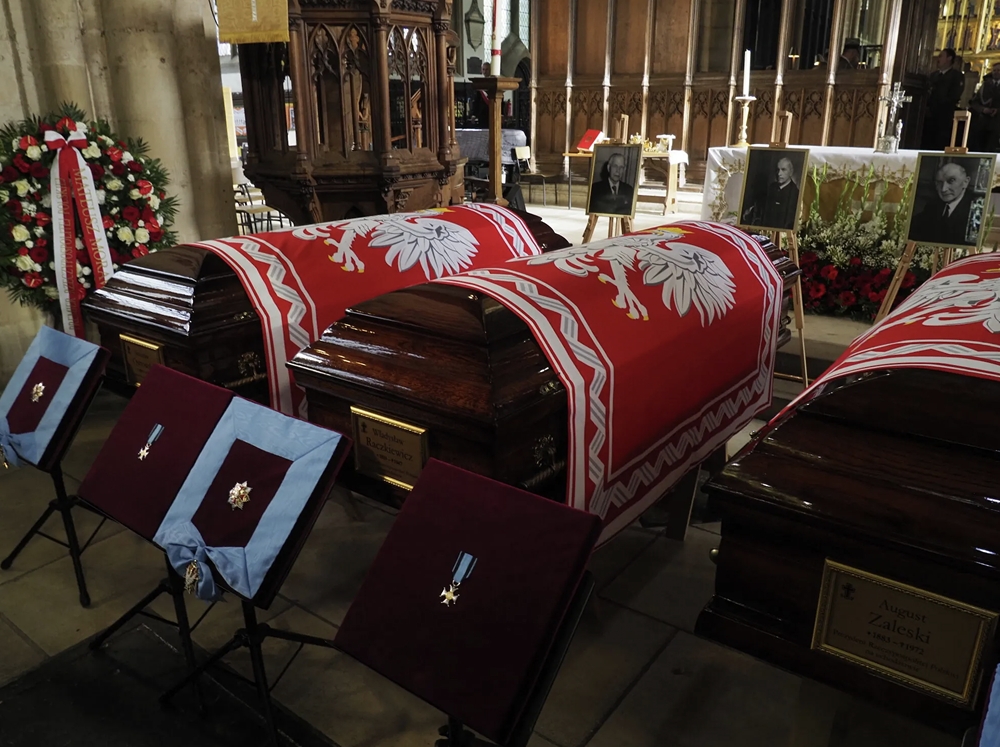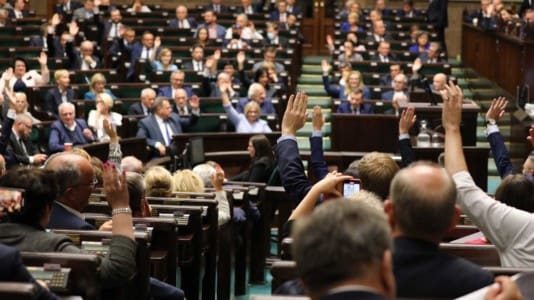The remains of three Polish presidents-in-exile, Władysław Raczkiewicz, August Zaleski, and Stanisław Ostrowski, were exhumed last Thursday at the Newark-on-Trent cemetery in England and will be transported to Poland on Nov. 12.
The very same day, they will be solemnly placed in the Church of Divine Providence in Warsaw, where the Mausoleum of Polish Presidents-in-Exile will be erected.
In an interview for Gazeta Polska Codziennie newspaper, Polish Prime Minister Mateusz Morawiecki assessed that “a nation that did not take care of its ancestors and leaders will not know where it should be headed.” That is why Poland’s duty is to preserve the memory of great Poles, he added.
History, said Morawiecki, is now an important tool of creating soft power: “Through history, through the good done by Poles, and undoubtedly our presidents-in-exile were depositories of good, we can fight for a positive perception of Poland throughout the entire world.”
It is very important for rebuilding the memory (of history) for Poles, he added. “Those individuals, who we are bringing back, are a living compass, showing how to live and serve Poland.”
The Polish prime minister also said that Polish elites did not break with the communist Polish People’s Republic (PRL). “A breakneck synthesis of the old communist order with the new, democratic one was tested after communism collapsed. Communism fell faster than some predicted, but unfortunately the foundations of the Third Polish Republic became corrupted by this system,” said Morawiecki.
“Leaving our presidents in exile, as the elites of the Third Polish Republic did, can be compared to leaving a friend on a field of battle. Now our duty is to bring them to Poland,” he stressed.
The Polish leader also revealed that preparing the exhumation and transporting the remains of the presidents required time and complicated diplomatic measures. “Fortunately, we managed to organize everything,” he said.
The Polish government-in-exile was set up in the aftermath of the invasion and occupation of Poland in September 1939 by Nazi Germany and the Soviet Union. It moved from France to London the following year.
After World War II, as Polish territory came under the control of the communist Polish People’s Republic (PRL), the government-in-exile remained in existence, though largely unrecognized and without effective power.
Only after the end of communist rule in Poland did the government-in-exile formally pass on its responsibilities to the new government of the Third Polish Republic in December 1990. Władysław Raczkiewicz was the first president-in-exile. He was succeeded after his death in 1947 by August Zaleski, who served for 25 years before his own death. Stanisław Ostrowski was president between 1972 and 1979.






